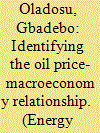| Srl | Item |
| 1 |
ID:
127832


|
|
|
|
|
| Publication |
2013.
|
| Summary/Abstract |
Federalist democracies often hold concurrent elections for multiple offices. A potential consequence of simultaneously voting for multiple offices that vary with respect to scope and scale is that the personal appeal of candidates in a high-profile race may affect electoral outcomes in less salient races. In this article I estimate the magnitude of such coattail effects from governors onto other concurrently elected statewide executive officers using a unique dataset of county election returns for all statewide executive office elections in the United States from 1987 to 2010. I exploit the disproportionate support that candidates receive from geographically proximate voters, which is often referred to as the friends-and-neighbors vote, to isolate variation in the personal appeal of candidates. I find that a one-percentage-point increase in the personal vote received by a gubernatorial candidate increases the vote share of their party's secretary of state and attorney general candidates by 0.1 to 0.2 percentage points. In contrast, personal votes for a secretary of state or attorney general candidate have no effect on the performance of their party's gubernatorial candidate or other down-ballot candidates
|
|
|
|
|
|
|
|
|
|
|
|
|
|
|
|
| 2 |
ID:
092801


|
|
|
|
|
| Publication |
2009.
|
| Summary/Abstract |
This paper employs the empirical mode decomposition (EMD) method to filter cyclical components of US quarterly gross domestic product (GDP) and quarterly average oil price (West Texas Intermediate-WTI). The method is adaptive and applicable to non-linear and non-stationary data. A correlation analysis of the resulting components is performed and examined for insights into the relationship between oil and the economy. Several components of this relationship are identified. However, the principal one is that the medium-run component of the oil price has a negative relationship with the main cyclical component of the GDP. In addition, weak correlations suggesting a lagging, demand-driven component and a long-run component of the relationship were also identified. Comparisons of these findings with significant oil supply disruption and recession dates were supportive. The study identifies a number of lessons applicable to recent oil market events, including the eventuality of persistent oil price and economic decline following a long oil price run-up. In addition, it was found that oil market related exogenous events are associated with short- to medium-run price implications regardless of whether they lead to actual supply losses.
|
|
|
|
|
|
|
|
|
|
|
|
|
|
|
|
| 3 |
ID:
131330


|
|
|
|
|
| Publication |
2014.
|
| Summary/Abstract |
Pakistan with highest number of terrorism related deaths of any country over the past decade, the number exceeding the total terrorism related deaths for both the European and North American continents, provides an ideal laboratory to study impact of terrorism on the macroeconomy. Quasi-Structural VAR, Vector Error Correction Model, Impulse Response Functions and Granger-Causality tests on a sample that covers over 4500 terrorist incidents and consequent 10, 200 deaths [from 1973 to 2010] are employed to study the relationship between terrorism and the macroeconomy. One of the major advantages of the current methodology is that it not only enables one to circumvent the heterogeneity biases inherent in cross-country studies but it also allows distinguishing between short and long-run effects. It is documented that cumulatively terrorism has cost Pakistan around 33.02% of its real national income i.e. terrorism costs Pakistan around 1% of real GDP per capita growth every year
|
|
|
|
|
|
|
|
|
|
|
|
|
|
|
|